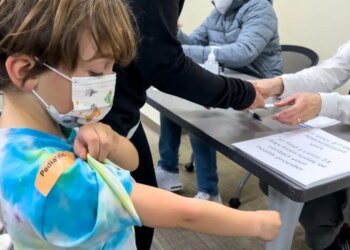TOPLINE:
NHS Talking Therapies for anxiety and depression (TTad) were less effective for adults aged 16-24 years than for those aged 25-65 years, a cohort study of over 1.5 million people revealed.
METHODOLOGY:
- Researchers conducted a retrospective cohort study using the data of 309,758 young adults (aged 16-24 years; 69.4% women; 82.5% White) and 1,290,130 working-age adults (aged 25-65 years; 65.2% women; 83.6% White) who received psychological treatment through England’s NHS TTad services between 2015 and 2019.
- The primary outcome was the change in symptom severity scores on the Patient Health Questionnaire nine-item (PHQ-9) and Generalised Anxiety Disorder Scale seven-item (GAD-7) between age groups.
- Secondary outcomes were rates of recovery, reliable recovery, reliable improvement, and reliable deterioration.
- The analysis was adjusted for gender, ethnicity, local area deprivation, clinical factors, treatment intensity, and the number of sessions.
- Sensitivity analyses included geographical and temporal variation in age-related differences and adults older than 65 years in the working-age group.
TAKEAWAY:
- Differences in pre-post symptom severity scores on the PHQ-9 and GAD-7 increased with age.
- In the unadjusted analysis, young adults experienced smaller improvements in PHQ-9 and GAD-7 scores than working-age adults (PHQ-9: b, -0.98; GAD-7: b, -0.77; P < .001 for both). The magnitude of difference was smaller in the adjusted analysis.
- Young adults had lower rates of reliable recovery (41.5% vs 48.2%; adjusted odds ratio [aOR], 0.76), reliable improvement (68.6% vs 72.6%; aOR, 0.83), and recovery (43.7% vs 51.1%; aOR, 0.74) but higher rates of reliable deterioration (5.9% vs 5.2%; aOR, 1.15) than working-age adults.
- Age-related differences were consistent across regions and treatment years, with London having the smallest difference (3.0%) and the South West having the largest difference (~6.5%), and unchanged when including adults older than 65 years.
IN PRACTICE:
“Getting young adults into treatment more quickly, offering them treatment in a convenient and desired format, and working hard to ensure they stay in treatment have the potential to improve outcomes for this group. Addressing social factors that are of particular concern to emerging adults — eg, job and housing insecurity — might also be required to improve outcomes in young adults,” the authors wrote. “Considering and trialling adaptions tailored to specific requirements of this age group, the management of information on mental health and mental illness, as well as expectations of treatment, might also be necessary,” they added.
SOURCE:
This study was led by Rob Saunders, PhD, and Jae Won Suh, DPhil, University College London, London, England. It was published online on August 6 in The Lancet Psychiatry.
LIMITATIONS:
The use of routinely recorded health service data limited the availability of measures on general well-being and personal sense of improvement. Although the analysis was adjusted for neurodevelopmental conditions such as autism, attention-deficit/hyperactivity disorder, and intellectual disability, the severity of these conditions and other potential confounders, such as gender identity, sexual orientation, and social support, were not captured. Moreover, unmeasured differences in treatment delivery and other common disorders in young adults may have influenced the results, and the findings were not generalisable to non-binary individuals due to limited data availability.
DISCLOSURES:
This study was funded by the UK National Institute for Health and Care Research. The authors reported having no conflicts of interest.
This article was created using several editorial tools, including AI, as part of the process. Human editors reviewed this content before publication.
Source link : https://www.medscape.com/viewarticle/talk-therapy-less-effective-young-vs-middle-aged-adults-2025a1000lby?src=rss
Author :
Publish date : 2025-08-15 12:00:00
Copyright for syndicated content belongs to the linked Source.









